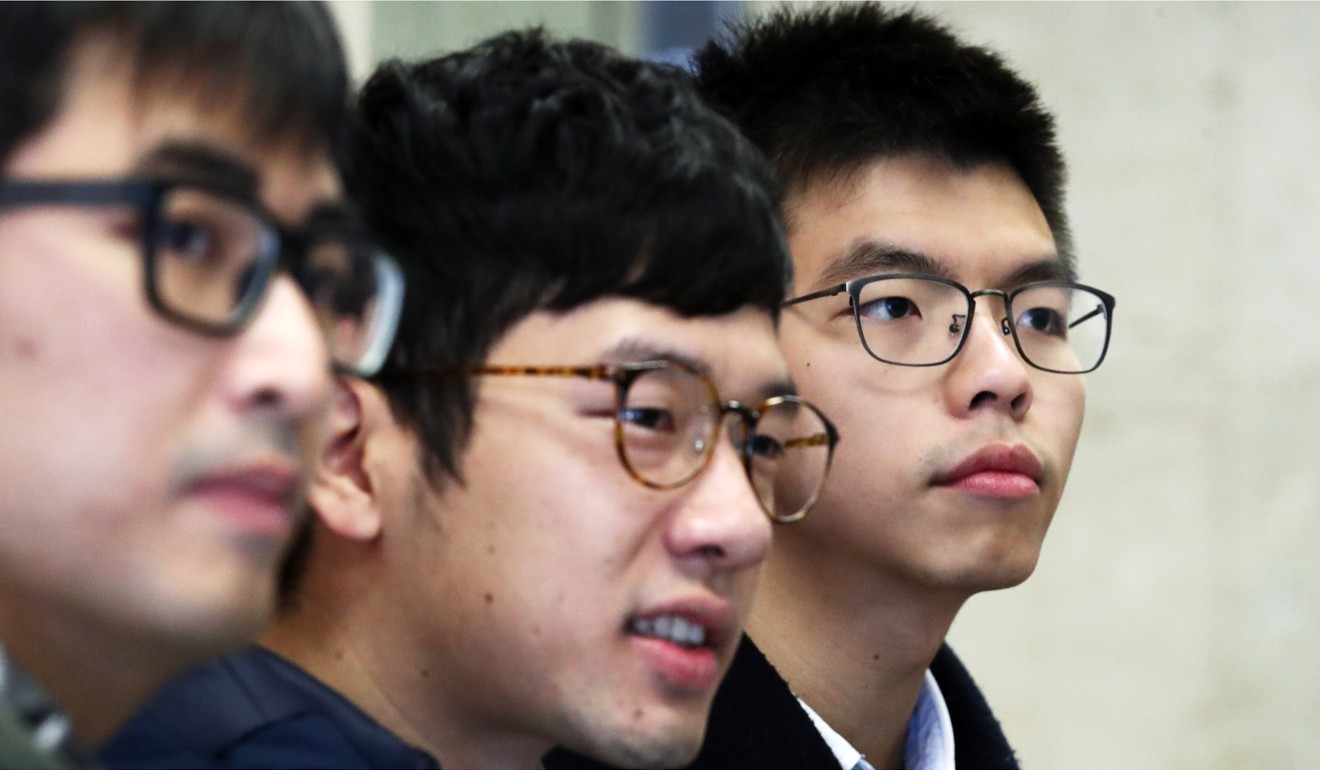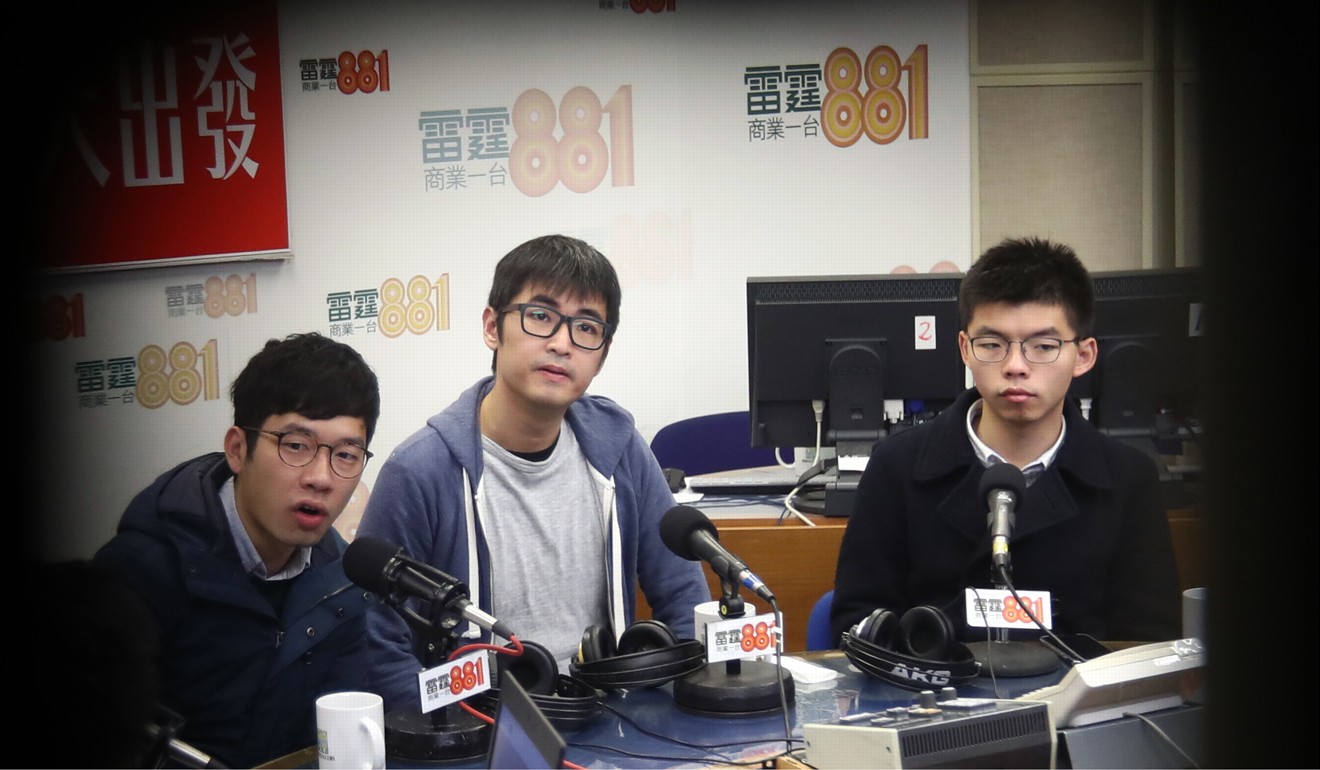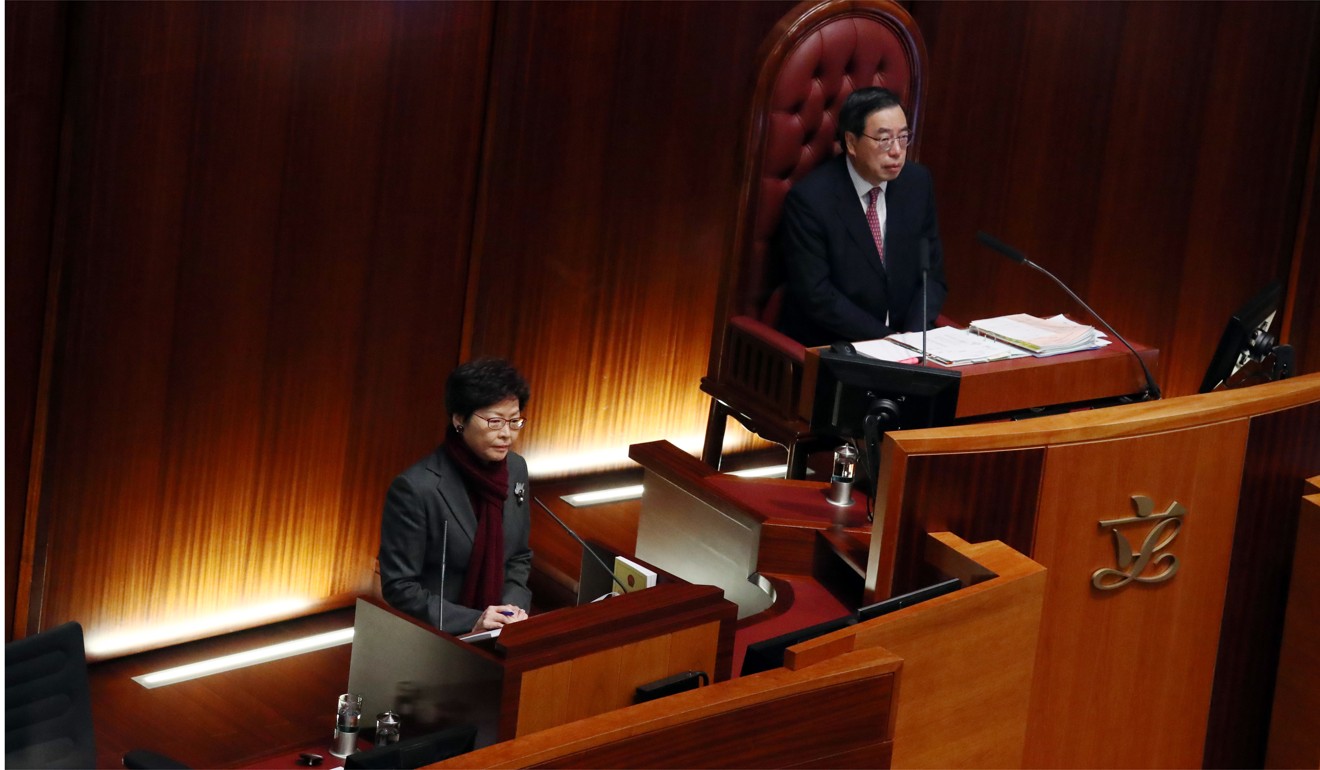
Hong Kong leader Carrie Lam defends controversial decision to seek jail terms for Occupy trio
Chief executive says top court endorsed strict sentencing guidelines for illegal protests put forward by appeal court despite quashing activists’ prison sentences
Hong Kong leader Carrie Lam Cheng Yuet-ngor on Wednesday defended the government’s contentious decision to ask for jail terms for three Occupy student activists a day after the city’s top court set them free.

Appeal ruling for Hong Kong democracy activist Joshua Wong could have ‘chilling effect’ on social activism
The chief executive’s stern retort was in response to questions raised by Democratic Party lawmaker Ted Hui Chi-fung during her 30-minute question time in the Legislative Council.
Hui said the top court’s decision to free the trio had proven the government was wrong to ask for stiffer sentences.
“Would you concede the government has made a mistake?” he asked Lam. “Is it a mission for you to jail all activists?”
Lam said she had expected the pro-democracy lawmakers would come to such a conclusion based on the ruling, accusing the camp of reading the judgment too simplistically.
“The judgment yesterday did not find the Department of Justice had made a mistake – as suggested by Hui – in reviewing the [activists’] sentences … It has even acknowledged part of the work done by the Court of Appeal,” Lam said.
Further legal action against more than 700 Occupy protesters not ruled out by Hong Kong’s new chief prosecutor
For instance, she said, the top court had said it was appropriate for the lower appeal court to emphasise deterrence and punishment in large-scale unlawful assembly cases involving violence, amid the increasing incidence of unrest and a rising number of huge public protests in Hong Kong.
She added the judges also ruled that civil disobedience, though recognised in Hong Kong, should carry “little (if any) weight” as mitigation when the acts committed infringed upon criminal law and involved violence.
Joshua Wong and other Occupy leaders nominated for Nobel Peace Prize by US congressmen
Wong on Tuesday described the judgment as a “sugar-coated harsh punishment” which might limit the city’s freedom of assembly in future, while legal scholars said it had sent a signal of caution for those interested in engaging in civil disobedience.
Speaking on a radio programme on Wednesday morning, the trio said the judgment would increase the government’s control over protests and rallies in the future and the political pressure on courts.
“We basically hoped that the Court of Final Appeal would have adjusted such draconian sentencing,” Wong said.
“In the past few years, first offenders of civil disobedience would have just been sentenced to community service. But since the Court of Appeal ruling last August … all civil disobedience participants – even those without records – would be immediately sentenced to six months [in jail] or above.”

Wong, who is on bail pending an appeal over a different case, involving contempt of court, disagreed that the storming of Civic Square – the forecourt of the government headquarters – amounted to violence and that the protesters’ motives should have been taken into account.
“I believe there is a big difference between taking a stand in the public interest [in civil disobedience] and pursuing one’s own self-interest,” he said.
Chow said the judgments did not take into account the political and social context of the time in 2014 and argued that the events leading up to the outbreak of the Occupy movement had been restrained and peaceful.
And Law, who was disqualified last year as a lawmaker, said he was concerned about the ability of courts to make decisions free from “self-censorship” in the future.
At least 2,000 protest banning of pro-democracy activist Agnes Chow from Legco race
As for the future of his party Demosisto, now effectively barred from taking part in elections in the city since the disqualification of Agnes Chow Ting, Law said the group would have to ponder a future outside legislative politics.
“The closure of the government’s gate [to us] is already quite apparent,” Law, the Demosisto chairman, said, adding rhetorically: “How will we fine-tune our plan; will we still call ourselves a political party since we aren’t able to participate in elections? Or will we become a civic organisation or a pressure group?”
With the court case out of the way, Law and Wong said they would go back to school to finish their undergraduate studies in the autumn, while Chow would return to the US to continue his doctorate.

Lam said she was aware that it was the constitutional responsibility of the government to work on such a bill, but emphasised the legislation would require a favourable environment in the city.
The government was forced to shelve the controversial bill in 2003 after half a million people took to the streets for fear their freedoms and rights would be curbed.


